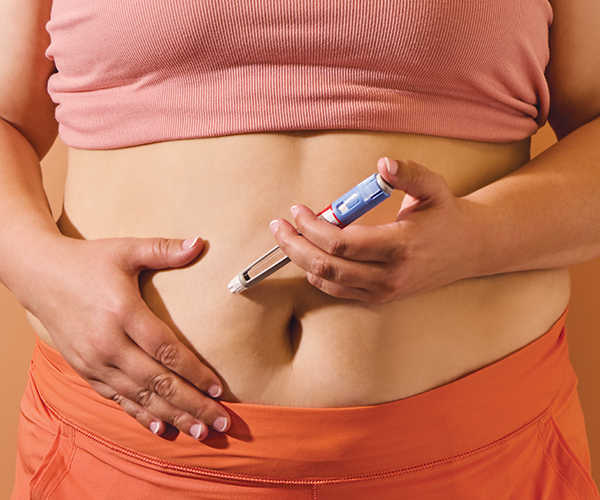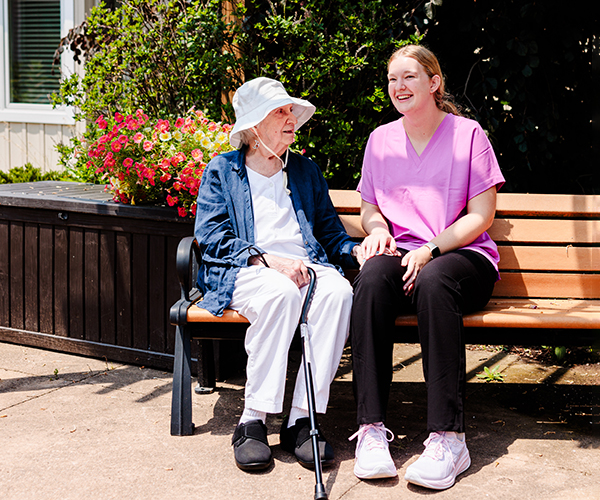Last year, about this same time, you vowed you would change. Your exercise routine lasted maybe a few days, your diet — a few weeks.
But now, standing in front of the mirror, you realize that you’re right back to where you started — and those same things that bugged you about your body last year still need work.
Maybe it’s your bulging thighs or overhanging waistline that you’d like to scale back. Or it could be that you’d like to enhance the appearance of your breasts. You’re tired of your eyes looking, well, tired. Not to mention the deepening crevices in your brow that represent too many years of worry.
This is the year to give your old look a kick where it counts — and give yourself an invigorated, refreshed look for 2006.
If you’re ready for a new you in the new year, it’s as easy as calling 1-800-MAKEOVER ... But before you dial up the new you, you’ll want to do your research and ask yourself a few questions.
• Is it worth the financial investment? Depending on the procedure, cosmetic surgery can be expensive — and the majority of procedures are not covered by insurance. (In some cases, breast reduction is covered.) Still, if it’s something you’ve always wanted — and you do your homework — it might just be the best money you’ve ever spent on yourself.
• Is it worth my time? Cosmetic surgery isn’t magic — and it isn’t as easy as it looks on TV. You don’t undergo a procedure one day, then go back to work looking fantastic the next. Many of the most common procedures — liposuction, facelift, tummy tuck, breast augmentation — can take up to a few weeks for your body to heal. Make sure you’ve got the time to heal properly for your procedure — or you could put yourself at risk for complications. But, if you can take your vacation around your procedure, your new look could mean more to you than that scrapbook of photos from your last vacation.
• Do I want to look like Jennifer Aniston or Angelina Jolie? Get real. Forget what Brad’s attracted to — and look at what will make YOU more attractive. “Each person has an individual look and appearance, and it has to do with their facial structure, what they were born with, what God has given them,” says Dr. Gregory Fedele of the Center for Plastic and Cosmetic Surgery. “A surgeon can enhance and improve things, but only within the context of what the person is starting with.” Besides, if you look really closely at any star, you’ll notice that they’re not perfect either. Perfect looks fake ... So go for a natural, improved version of yourself — not a phony version of some celebrity.
• Am I at my ideal weight? That question may sound silly because you assume if your weight was perfect, you might not need a tummy tuck or liposuction. But it’s important to be as close to your ideal weight as possible. A tummy tuck won’t take you from a size 16 to a size 2. If you lose weight after the surgery, then your skin could hang loose or your breasts could sag, and it won’t look as if you had cosmetic enhancements at all. If you’re morbidly obese, consider weight loss surgery prior to plastic surgery. So, take off the pounds first, then you’ll really feel good about the new you.
• Do I want to have a baby and breastfeed in the near future? Hoping for a future pregnancy doesn’t mean that you can’t go ahead and have that tummy tuck, but you need to realize that, as with dramatic weight loss discussed above, that pregnancy could undo the surgery results. Also, getting breast augmentation (implants) or reduction doesn’t absolutely mean that you won’t be able to breastfeed in the future, but in some cases, it can make it more difficult or even impossible. Always tell your surgeon your plans for pregnancy or nursing PRIOR to your cosmetic surgery, so he or she can talk with you about making the right decision.
• Do I smoke? If you answered yes, then QUIT! Smoking significantly increases the risks of undergoing anesthesia. It also slows healing and increases scarring — making the surgery almost worthless. But, the bottom line is, no legitimate plastic surgeon will even consider doing elective surgery on a smoker. It’s a new year and it’s about time you quit anyway. Remember, you have to be off all nicotine products at least a month before surgery, including gum and patches. So, along with planning on plastic surgery, resolve to quit smoking, too.
• Do I take any medicine — or even vitamins? No matter how innocent an over-the-counter product may seem, you must tell your surgeon PRIOR to surgery. That even includes something as seemingly harmless as vitamins. The truth is, that many vitamins are good for the skin, but others, such as Vitamin E, can increase the risk of bleeding during surgery. So ’fess up about your homeopathic remedies — and, of course, all your prescription drugs, even birth control pills, patches or rings.
• Am I afraid of undergoing anesthesia? You desperately want a new look, but you’re scared of jumping right into the major surgery that’s needed for a facelift. Consider starting with a non-invasive procedure, such as Botox® injections to reduce the deep creases in your forehead or fat transfer to smooth out the lines around your mouth. Even simply getting professional skin care can give your face a more rested and refreshed look. For more information on these procedures, go to www.drfedele.com or www.plasticsurgery.org.
• Get names of plastic surgeons from friends or relatives. Remember that no one should pressure you to use a surgeon just because they liked that person or promised to send that doctor business. But if the name comes from a trusted friend, it’s a much better place to start than the yellow pages.
• Ask another physician you trust whom he or she would recommend.
• Verify that the surgeon you’re considering is certified by the American Board of Plastic Surgery (www.abplsurg.org). Many doctors can state that they are “board certified,” but that doesn’t mean they’re qualified to do plastic surgery. Only the ABPS is recognized by the American Board of Medical Specialties to certify a properly trained surgeon for the entire spectrum of plastic and cosmetic surgery.
• Check that the surgeon is a member of the American Society of Plastic Surgeons (ASPS). This is the largest group of plastic surgeons in the world. This verifies your plastic surgeon has the highest level of certification and training for plastic and cosmetic surgery. Visit www.plasticsurgery.org to find the surgeon’s name.
• Do your homework. Learn about the procedure you want to have done so you can discuss it intelligently with the surgeon. There’s a wealth of information about all cosmetic procedures at www.plasticsurgery.org and www.drfedele.com.
• Visit more than one surgeon. This helps to give you a perspective on things you like and don’t like about each one. After your visit, ask yourself: How much time did the doctor give me? Was it just five minutes or 20? Did he or she treat me with respect and listen to me? Is the doctor willing to meet with me a second time? Did I like and feel comfortable with the office staff? Did we discuss money? It’s never a good idea to skimp and go with the cheapest price when you’ll have to live with the results, but in Northeast Ohio, it’s probably not necessary to pay way above the going rate for a procedure, either. Average national rates can be found at www.plasticsurgery.com.
• Be clear about where the surgery will be performed. Major procedures, such as breast augmentation, facelifts, and liposuction, should be performed in an accredited surgery center or hospital. For the utmost safety, there should be a separate anesthesiologist or nurse anesthetist who administers the anesthesia. The plastic surgeon is too busy performing the procedure to accurately monitor anesthesia.
• Check with previous patients of the doctor — but take what they say with a grain of salt. A good physician should be willing to give you names and phone numbers of previous patients who have undergone the same procedure and have agreed ahead of time to talk with prospective patients. Keep in mind, however, that everyone handles pain and heals differently. Therefore, if someone tells you the procedure was as easy as pie, but you know you have a low pain tolerance, be prepared that your slice of the pie might be harder to swallow.
The Top Five Procedures, And The Average Recovery Time
Liposuction: 1 to 2 weeks, back to work; 3 to 6 months, full recovery from swelling and bruising.
Nose Shaping (rhinoplasty): 1 to 2 weeks, back to work; 6 to 12 months, final appearance.
Breast Augmentation: 1 week, back to work; fading of scars, several months to a year.
Eyelid Surgery: 7 to 10 days, back to work; several weeks, all bruising and swelling gone.
Facelift: 10 to 14 days, back to work; 3 weeks, all bruising; several months before your final result.
Our new toll-free number for Ohio makes it easy to make your first appointment with Dr. Gregory Fedele of the Center for Plastic and Cosmetic Surgery. Dr. Fedele is both an artist and a surgeon certified by the American Board of Plastic Surgery who spends the time with each patient to understands the individual’s needs.
Whether you’re in the first stages of learning about plastic surgery — or are ready to go for it — you’ll want to make an appointment with Dr. Fedele to learn how he can help you achieve your ideal look. Or, if you’d just like to start your new year with fresher, improved skin, make an appointment with his medically licensed aesthetician.
Our Philosophy
At the Center for Plastic and Cosmetic Surgery, we understand that considering cosmetic surgery is a very personal and serious decision.
Dr. Fedele and his staff will take the time to answer all your questions and concerns to ensure you are comfortable and have a complete understanding of the procedure you choose.
We welcome you and look forward to working with you on your journey toward a positive outlook and renewed confidence.



